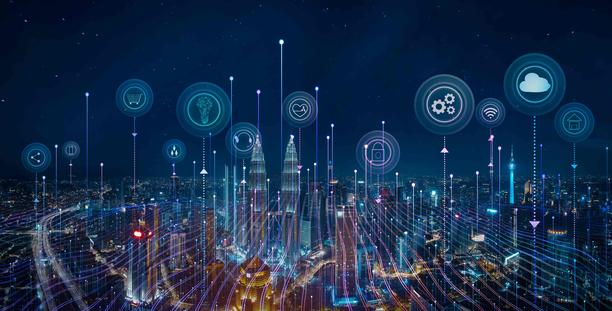|
Moreover, AI's ability to process and analyse unstructured data, such as text, images, and videos, allows it to uncover hidden patterns and insights that would otherwise go unnoticed. This capability is valuable in areas like fraud detection, where AI can analyse transaction data to identify suspicious activities in real-time, preventing financial losses and enhancing security.
AI's Impact on Individuals and Organisations
At the individual level, AI is transforming the way we live and work. From tailored recommendations on streaming platforms to virtual assistants that manage our daily schedules. In education AI-powered tutoring systems cater for individual learning styles and paces, offering support and improving educational outcomes.
For organisations, AI provides a competitive advantage by enabling data-driven decision-making and enhancing operational efficiency. Businesses can leverage AI to gain insights into customer behaviour, refine marketing strategies, and improve product development, driving growth and fostering innovation through rapid iteration based on real-time feedback.
AI also has the potential to transform the workforce. Although concerns about job displacement exist, AI can augment human capabilities and create new opportunities. In manufacturing, AI-powered robots can handle repetitive tasks, allowing human beings to focus on more complex and creative aspects of production. In healthcare, AI assists doctors in diagnosing diseases, freeing up time for patient care and reducing burnout. Additionally, robotic-assisted surgeries have improved surgical precision, enabling more complex and minimally invasive procedures.
Community Development
Beyond individuals and organisations, AI has the power to transform communities. Smart cities, which leverage AI to optimise urban infrastructure and services, are examples of this potential. By analysing data from sensors and cameras, AI can improve traffic management, reduce energy consumption, and enhance public safety. This leads to more liveable and sustainable cities, improving the quality of life for residents. In NEOM, the futuristic city being developed in Saudi Arabia, AI is being integrated into every aspect of urban planning and governance. From automated transportation systems to AI-driven energy grids and smart housing. NEOM aspires to become a paradigm of a sustainable and technologically advanced urban environment, showcasing the transformative capabilities of AI on a grand scale.
AI can also play a role in addressing social challenges. For instance, predictive analytics can help identify at-risk students in schools, enabling timely interventions and reducing dropout rates. In disaster management, AI can analyse data from various sources to predict natural disasters and coordinate emergency response efforts, potentially saving lives and reducing damage. Moreover, AI-driven platforms can facilitate greater civic engagement by providing citizens with real-time information and opportunities to participate in decision-making processes. This can lead to more transparent and accountable governance, as well as more inclusive and resilient communities.
Influence on Industries
AI's power extends across industries, reshaping their landscapes. In finance, algorithms are transforming trading strategies, risk management, and customer service. High-frequency trading, driven by AI facilitates faster and more accurate trading decisions, while AI-powered chatbots provide personalised financial advice and support.
In healthcare, AI is changing diagnostics, treatment, and drug discovery. Machine learning models analyse medical images to detect diseases early, improving patient outcomes. AI also accelerates drug development by identifying potential candidates and predicting their effectiveness, thereby reducing the time and cost associated with clinical trials.
In manufacturing, AI-powered robots and automation systems enhance production efficiency and quality control. Predictive maintenance, enabled by AI, reduces downtime and extends the lifespan of machinery, leading to cost savings.
Societal Implications
As AI continues to evolve, it raises ethical and societal questions. The concentration of AI capabilities in the hands of a few tech giants poses challenges related to data privacy, security, and inequality. Ensuring that the benefits of AI are distributed equitably requires thoughtful regulation and policies that promote transparency, accountability, and inclusivity.
Education and workforce development are critical to preparing society for the AI-driven future. Investing in science, technology, engineering, and mathematics (STEM) education and retraining programmes can equip individuals with the skills needed to thrive in an AI-dominated economy. Additionally, promoting a culture of lifelong learning and adaptability is essential, as the pace of technological change accelerates.
Takeaways
AI emerges not just as a technological advancement but as the new cornerstone of global economic evolution, akin to Adam Smith's invisible hand that shaped the Industrial Revolution. Its ability to process vast amounts of data and optimise resource allocation transcends traditional methods, promising unprecedented efficiency, and innovation across industries. Just as Adam Smith's principles drove economies forward by harnessing individual self-interest, AI enhances productivity and decision-making, driving societies towards new heights of prosperity. However, the transformative power of AI also necessitates consideration of its ethical and societal implications. The concentration of AI capabilities among a few entities raises concerns about privacy, security, and equitable access to benefits. Effective regulation and inclusive policies are important to ensure AI benefits society, promoting transparency and mitigating potential inequalities. As we navigate this era of AI-driven progress, investing in education and workforce readiness becomes important. Equipping individuals with the skills to thrive in a technology-dominated landscape is essential for encouraging innovation and maintaining societal wellbeing. In this rapidly evolving era, AI is not just a tool for economic growth but a catalyst for a more intelligent and connected world, heralding a new chapter in the wealth of nations.
|


Comments